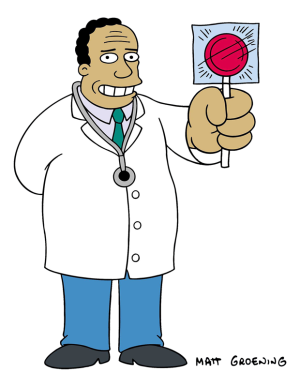QualcommVlog’s Interview with Nokia’s Stephen Elop (and random Rant on sensors and health apps.
I missed Stephen Elop’s keynote at Qualcomm’s Uplinq yesterday. Does anyone have a link to it?
Anyway, below is a video interview after that said keynote.
There’s nothing new really there that as Nokia fans we haven’t heard before from previous videos or articles.
-cheers crisscross
Here’s another Qualcomm video, this time with Qualcomm’s CEO Paul Jacobs.
The post was not meant to focus on this at all but somehow below got written down.
It’s interesting he talks about 6th sense. Sensors in various places to give additional information to your phone. One particular area that interests me is sensors in the human body. One of the things I had always thought about as a kid was for technology to be kinda embedded in you, just there scanning information, allowing you to connect with others, watch things without screens, ha.
The sensor part though is something that could be and is in some research labs a reality. Nokia has done their part in this field as have other companies but NOTHING that changes the way we perceive mobile technology’s contribution to the way healthcare is delivered.
Imagine having sensors that tell you your blood pressure, information on your lipids, glucose levels, blood gases, etc. These can tell us so much about your body, how your heart/lungs are functioning, if you have any organ damage, any infections and so forth. The most important thing they can do is keeping a check on how you’re doing and provide you warnings and indications when things aren’t. Imagine then that apps can be linked to book an appointment with your doctor (or tell you to do so). It can suggest you to eat certain foods (e.g. if your blood is lacking in iron, vitB12 and folic acid to eat more green leafy veg or liver) or it can give you a recipe for certain foods, location to that store, an option to order from that store and have it delivered to your house. That same advice might suggest you avoid other things too. If it senses high cholesterol to perhaps avoid on diet saturated in fats. Perhaps if it constantly sees over a long period of time high alcohol levels it might tell you about it – perhaps give links to an eBook about advice on this.
Based on your heart rate, ventilation rate, blood gases, a pedometer and GPS , sensors can see how much physical activity you perform and how your body copes. It can see if over a 2 block walk you get really tired, your heart might be over straining, BP becoming slightly hypertensive -Â it can suggest perhaps checking your weight (giving locations to places that can do that) working out your BMI and based on this perhaps suggesting going to the gym, finding gyms that are local or have special offers, or home products that can assist on increasing physical activity or link back to previously mentioned dietary aids or suggesting hospital appointments. (There’s other factors to consider of course, age – any other known disease that might be causing similar symptoms)
What makes these new type of sensors brilliant is that they can record your vitals without you telling them. It’s like Nokia Wellness Diary without your manual input. It’s one thing providing action plans based on the information recorded, but it’s another thing getting that information in the first place. In the future we can get not just all our stats in one occasional test, we can build up a database of how our health manages over time. The biggest killers in the western world are preventable diseases. Cardiovascular disease – often silent killers, if only tracked before hand, mortality can be greatly reduced by timely preventitive measures. Likewise for infectious diseases and some cancers.
One thing that limits the above is to first develop such sensors. It might be one it might be several. They could be permanent fixture or something that could be disposed and replaced every month. I’d say such things would be very helpful where healthcare isn’t free – to avoid unnecessary trips to the hospital/health clinics. But they’d also be useful anyway where healthcare is free as no one really wants to visit their doctor anyway.
The possibilities are endless.
I’d also like perhaps improved voice recognition so apps perhaps could ask you “How are you feeling” and without typing things in you can just say, “I’m really tired, I haven’t slept much”….the app could ask you how much you’ve slept today and just saying it could record you (if it hasn’t used its own sensors to record your sleep amount on its own:p).
Hmm..I’ve detoured so much on this Elop post. I might have to revisit the notion of sensors and health application another time.
Category: Nokia






Connect
Connect with us on the following social media platforms.